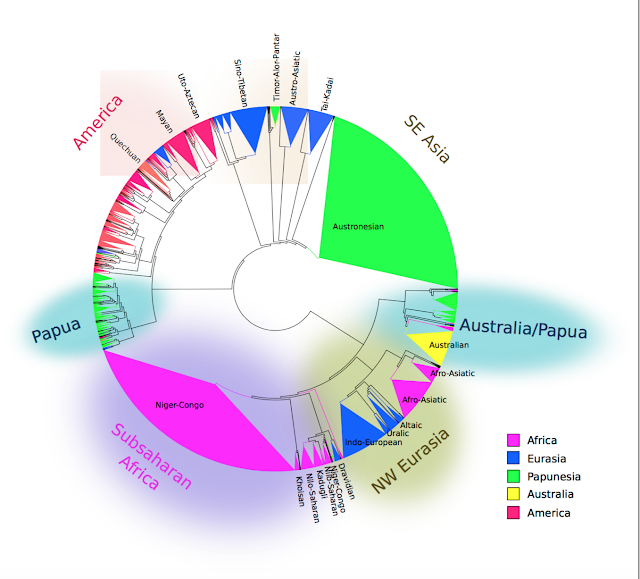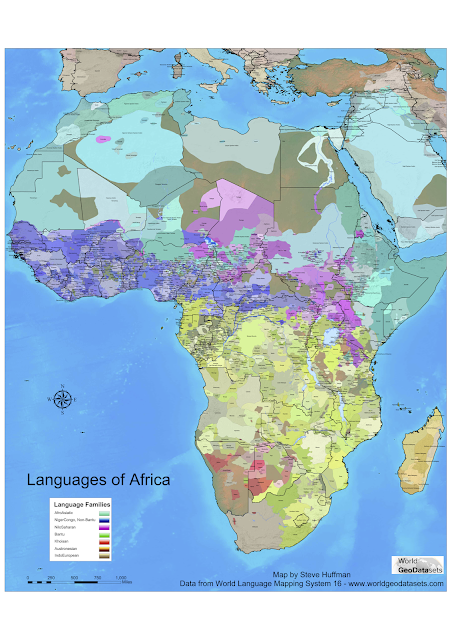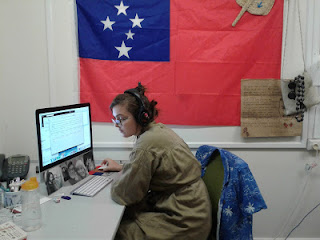Linguistics at Down Under National Youth Science Forum
Representing linguistics at science forum, some links and photos. Material to inspire those interesting in linguistics and perhaps also useful things to other linguists thinking of doing the same thing.
Colleagues and I at the Centre (of Excellence) for Language Dynamics, and from linguistics at the College of Asia-Pacific and College of Arts and Social Sciences at Australian National University have recently been involved in representing linguistics at the Down Under National Youth Science Forum. It's organised by Rotary Down Under (Australia, Solomons, Papua New Guinea, Tonga, Samoa, New Caledonia, Fiji, Vanuatu, Nauru, Norfolk, American Samoa and New Zealand) and is taking place here in Canberra where I live.
Lots of high school students attended, mainly from Australia and New Zealand, and they were very enthusiastic, to say the least :)! We got lots of clever questions and reflections, we were much impressed with the students. This was the first time linguistics was covered in this Science Forum, and we think it went very well and hope that the students enjoyed it too!
We did a lab visit - a series of short introductory talks - and participated in a "speed date a scientist" event.
Lab visit
Speed Dating a Scientist
At the speed dating event we were four linguist attending The most common question was of course "how many languages do you speak?" which is an issue we've covered earlier in more detail here and that I should perhaps take up again.
They also asked about the future of language on the planet, hardest language to learn, linguistic relativism and other interesting topics. If you want to know more, ask us :)!
We got other questions as well, and the students were very sweet and interested. It was an unusual, but fun event. We only got 10 minutes with each group of students, but in that time you do get to cover a lot of stuff if you're keen!
If you're interested in linguistics or looking to do something similar, might I recommend these posts?
Colleagues and I at the Centre (of Excellence) for Language Dynamics, and from linguistics at the College of Asia-Pacific and College of Arts and Social Sciences at Australian National University have recently been involved in representing linguistics at the Down Under National Youth Science Forum. It's organised by Rotary Down Under (Australia, Solomons, Papua New Guinea, Tonga, Samoa, New Caledonia, Fiji, Vanuatu, Nauru, Norfolk, American Samoa and New Zealand) and is taking place here in Canberra where I live.
Lots of high school students attended, mainly from Australia and New Zealand, and they were very enthusiastic, to say the least :)! We got lots of clever questions and reflections, we were much impressed with the students. This was the first time linguistics was covered in this Science Forum, and we think it went very well and hope that the students enjoyed it too!
We did a lab visit - a series of short introductory talks - and participated in a "speed date a scientist" event.
 |
| Yours truly talking with hands. Photographer: Evana Ho |
Lab visit
- list of talks given
- slides from the talks
- photos by Evana Ho on the Facebook page for Arts & Social sciences at ANU
- article on ABC news
- coverage on ABC radio (1 hour 16 minutes in)
Speed Dating a Scientist
 |
| Alexandra Marley and Hedvig Skirgårdat the speed date a scientist event. (The students had not arrived on the lower one.) Photos from my insta. |
At the speed dating event we were four linguist attending The most common question was of course "how many languages do you speak?" which is an issue we've covered earlier in more detail here and that I should perhaps take up again.
They also asked about the future of language on the planet, hardest language to learn, linguistic relativism and other interesting topics. If you want to know more, ask us :)!
We got other questions as well, and the students were very sweet and interested. It was an unusual, but fun event. We only got 10 minutes with each group of students, but in that time you do get to cover a lot of stuff if you're keen!
If you're interested in linguistics or looking to do something similar, might I recommend these posts?
- slides on top-8 languages with most native speakers and foundational research questions in linguistics
- illustrations of grand questions of linguistics
- That infographic on languages of the world - some context to help you understand what's going on
Also check out the tag "Current Linguistic Research" and the slides from the lab visit.
If you're a secondary school student anywhere in the world, do check out the International Linguistics Olympiad and see if you can compete!
P.S. My native language is not English and I'm not very comfortable with the "science" = "natural sciences" idea that seems prevalent in anglophone societies. If you want to have a longer discussion of why linguistics is a science, we could, but basically just consider that if you apply the scientific method to a study object you are doing science regardless of what the study object is.



Comments
Post a Comment